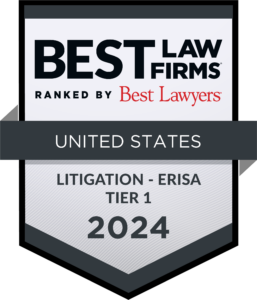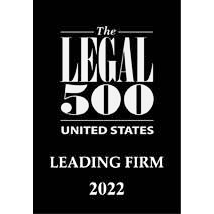Employee stock ownership plans (“ESOPs”) provide for investment primarily in employer stock and are a means by which employees of publicly traded and closely held companies may acquire tax-favored ownership of company stock.
ERISA’s fiduciary obligations (other than the duty to diversify) govern those who administer ESOPs. ESOPs are frequently used as a means of corporate succession – they are formed to purchase the stock of a company’s founders. An active plaintiffs’ bar – and the DOL – closely monitor ESOP transactions and litigation is common. Plaintiffs (including the DOL) typically claim that the ESOP overpays for company stock.
Our team regularly counsels employers and ESOP fiduciaries on matters of compliance with federal and state law, and strategies to reduce exposure to liability in the formation and administration of ESOPs. We also regularly defend companies and ESOP fiduciaries in litigation and governmental investigations relating to the establishment, funding, and administration of ESOPs.
Select examples of our experience litigating ESOP issues include:
Solis v. Webb, eta/.(N.D.Cal.) Represented former company executive and alleged ESOP fiduciary in litigation brought by the Department of Labor challenging the price at which the ESOP purchased company stock, and certain corporate transactions allegedly impacting the value of company stock.
Clarke v. Undeman, eta/.(E.D.Cal.) Defended Valley
Aggregate Transport and an individual fiduciary in this federal class action for breach of fiduciary duty in connection with the formation and administration of an ESOP.
Vincent v. Reser (N.D. Cal.)
Represented ESOP sponsor and fiduciaries in litigation alleging breach of fiduciary duty, and prohibited transaction violations based on claims that the ESOP paid more than fair market value for company stock.
Sender v. Franklin Resources, Inc. (N.D.Cal.; 9th Cir.)
Represented Franklin Resources, Inc. in the Ninth Circuit in this claim for benefits brought by a former participant in an ESOP that terminated in 1982. Obtained summary judgment in defendant’s favor.
Hurtado v. Rainbow Disposal (C.D. Cal.)
Represented an ESOP trustee that approved the sale of stock owned by an ESOP to a publicly held company against claims that, among other things, the stock price that the ESOP received in exchange for its shares was undervalued because money that otherwise might have been paid to the ESOP was paid to company management in the form of non-competition compensation.
Laidig v. GreatBanc Trust Company (N.D. III.)
Represented an ESOP trustee relative to claims that the ESOP overpaid for company stock acquired from a private equity firm.
If you'd like to know more
For more information regarding this area of the Firm’s practice, please contact Brad Huss, Joe Faucher or Dylan Rudolph.





